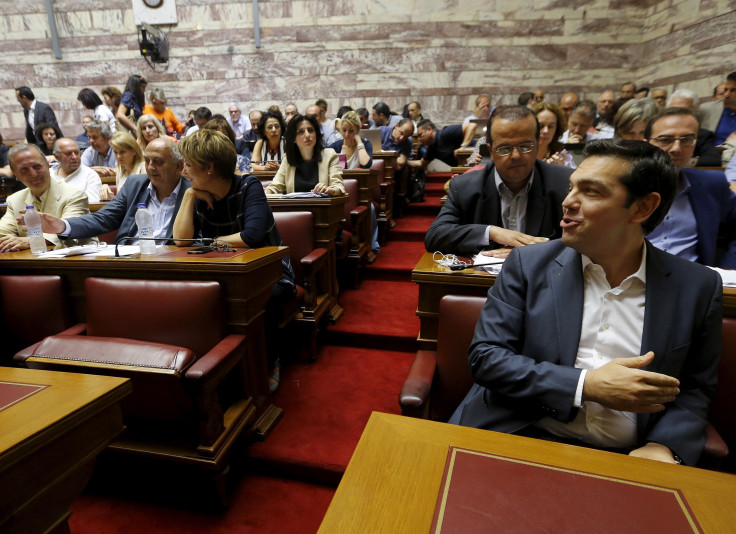Greece Debt Crisis: Syriza Majority Will Not Support Greek Bailout Plan

More than half of Greece's Syriza political party was expected to vote against the tough reforms that come with the Greek bailout plan in a parliamentary vote Wednesday. Greek Prime Minister Alex Tsipras, who negotiated the plan to keep Greece in the eurozone, faces opposition from 107 of 201 of his Syriza party central committee members, the Guardian reported. The objecting members published a declaration criticizing Tsipras' agreement, one day after an International Monetary Fund (IMF) report condemned the deal.
107 out of 201 Syriza central committee members publish declaration condemning Tsipras' agreement with Eurozone. Now it's getting serious.
— Yannis Koutsomitis (@YanniKouts) July 15, 2015The IMF demanded more debt relief from the European nations in a confidential document released Tuesday by Reuters, saying it would only support the third bailout if IMF played a critical role in the deal since it would be providing monetary support and overseeing Greece's compliance with the payments and regulations. More money than previously negotiated was necessary for Greece's recovery as a result of the devastation the last two weeks have caused banks, the report said. Under the current plan, Greece would receive as much as 86 billion euros ($95 billion).
Greece must accept the first set of reforms Wednesday for the eurozone to begin negotiations to determine what package the country would receive in return. Greek Energy Minister Panagiotis Lafazanis has said he would not vote for the deal.
Syriza is the main political party, but its opposition may not hold the deal back from passing. The opposing parties -- the conservative New Democracy, the centrist To Potami and the socialist Pasok -- have come together to support the reforms, Bloomberg News reported. Their combined 106 votes would account for most of the necessary votes to pass the deal. Only a majority, 151 votes, from Greece's 300-member Parliament was needed.
A snap election could occur if the bailout reforms do not pass, Reuters reported.
© Copyright IBTimes 2024. All rights reserved.






















